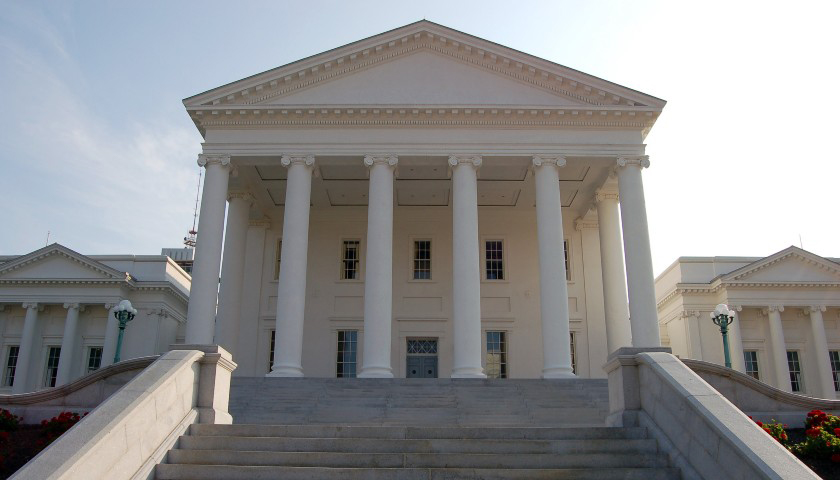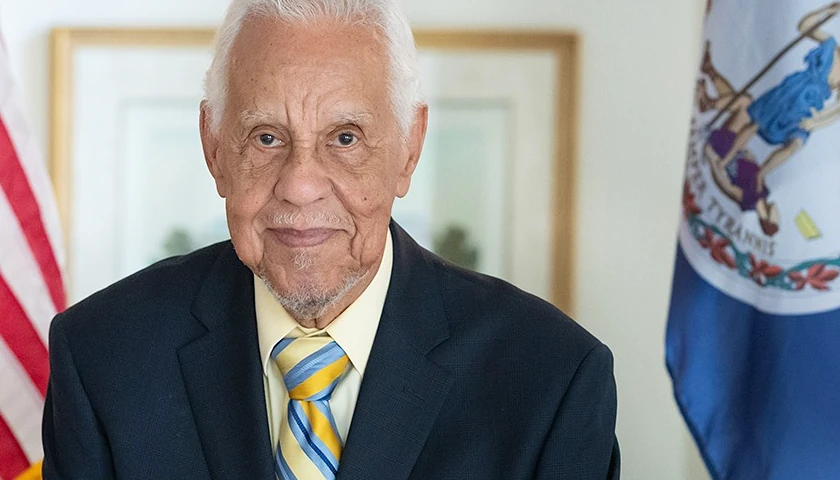The application window for citizens to apply for the Virginia Redistricting Commission closed on Monday and a final tally from the Virginia Public Access Project (VPAP) showed that 1,238 Virginians are interested in serving on the extremely important and influential panel.
Just two weeks ago, however, only 88 citizens had applied for the commission since November 30 and Virginia Division of Legislative Services (DLS) Director Amigo Wade said they received 600-650 applications during the final days before the deadline.
“I am certainly happy that we had as many [applications] as we did, especially considering the slow start,” Wade said in an interview with The Virginia Star.
Among the group of applicants, 34 percent are from Northern Virginia, 25 percent live in the greater Richmond region and 17 percent hail from Hampton Roads – the Commonwealth’s three primary urban areas. The region with the fewest applicants is Northern Neck with just 2 percent, followed closely by Southwest and South at 3 percent each, according to VPAP.
The majority of applicants are male (62 percent) compared to female (38 percent), 67 percent of the group are aged 51-80 and 41 percent reported an income between $101,000 and $200,000, VPAP found.
When distinguishing the applicants by race, 76 percent are White, 19 percent are Black, 4 percent identified as Hispanic, 2.4 percent are Asian and 16 people did not respond, according to VPAP.
For comparison to the overall picture of the state, as of 2019, Virginia’s population was 50.8 percent female, 19.9 percent Black, 9.8 percent Hispanic or Latino and 6.9 percent Asian. Furthermore, median household income in the Commonwealth from 2015-19 was $74,222 (2019 dollars), according to U.S. Census figures.
In terms of preferred political party affiliation, 48 percent of applicants reported as Democrats, 31 percent had no party and 18 percent were Republicans, according to VPAP.
Wade told The Star that he was not surprised by the demographic breakdown of the group because this application process, along with the entire redistricting commission, is new for every party involved and there is nothing to gauge the results by.
Now that the application window is closed, the four legislative leaders from the House of Delegates and Senate – Speaker of the House Eileen Filler-Corn (D-Fairfax County); House Minority Leader Todd Gilbert (R-Shenandoah); Senate President Pro Tempore Louise Lucas (D-Portsmouth); and Senate Minority Leader Tommy Norment (R-James City) have until Friday to each submit a list of at least 16 applicants to the redistricting commission selection committee.
The selection committee, consisting of five retired circuit court judges, must approve two citizens from each list by January 15. When making their determinations, the judges must make sure the group is representative of the Commonwealth’s racial, ethnic, geographic, and gender diversity.
A helpful visual representation of that process can be found here.
Those eight citizens will join eight current lawmakers on the commission and help redraw the state’s 11 congressional and 100 House districts, hopefully in time for the 2021 elections for governor, lieutenant governor, attorney general and all 100 seats in the House.
The eight legislative commissioners were named by the party leaders at the beginning of December. The legislators are Senators Steve Newman (R-Bedford), Ryan McDougle (R-Hanover), George Barker (D-Fairfax County), Mamie Locke (D-Hampton) and Delegates Delores McQuinn (D-Richmond City), Marcus Simon (D-Fairfax County), Les Adams (R-Pittsylvania County) and Margaret Ransone (R-Caroline County).
The commission will be using population data from the 2020 Census to redraw the districts, but the data has been delayed to the spring and is expected to be sent to states as close to April 1st as possible, according to the Census Bureau.
It is unclear at this time if the commission will wipe the slate completely clean and redraw every district or use the old lines as a starting point and adjust from there. In a previous interview with The Star, Brian Cannon, executive director of Fair Maps VA, said it is more likely the commission chooses the latter approach given the time constraints.
The commission will hold its first public meeting on February 1, 2021 and can begin preliminary work, but most of the heavy lifting will need to wait until the updated population data is delivered.
– – –
Jacob Taylor is a reporter at The Virginia Star and the Star News Digital Network. Follow Jacob on Twitter. Email tips to [email protected].
Photo “Virginia Capitol” by Taber Andrew Bain CC BY 2.0




